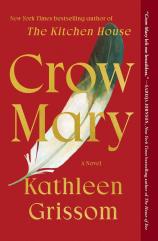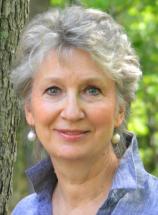Reading Group Guide
Discussion Questions
Crow Mary

1. “What were our young warriors to do but to take a stand and fight for the right to live as their fathers and grandfathers had always done?” CROW MARY is about colliding cultures and a woman caught between the two. Farwell insists throughout the novel that the only way for the Crow people to survive is to adapt to the White laws and customs. Was there ever a way for the Crow people to retain their culture while adapting to the new laws and customs? Even if they adapted, could they survive? How is Crow Mary able to reconcile her Crow past with her husband and their way of life?
2. The Crow people honor and celebrate nature throughout the novel. Discuss the role of nature in CROW MARY. Does Goes First’s connection to the natural world change over the course of the narrative as she evolved into Crow Mary? How do these changes impact her well-being and identity?
3. “We Crow used every part of the buffalo...everything we needed came from the buffalo.” The buffalo is essential to the Crow way of life. Both the Crow people and the White people hunt for sustenance, but in distinct ways. Discuss these differences.
4. The Crow people are interdependent. They rely on each other for support, possessions, medicine and more. How does this compare with the expectations of the white culture? Are the differences reconcilable?
5. “You don’t have to be a warrior to be brave. Women are as brave as any warriors.” The Crow women are raised to be independent, courageous and strong. They can leave their husbands, they possess their own belongings, and they care for their own horses. Discuss how women are perceived in the novel by the different communities and characters. Does this create a conflict for Crow Mary?
6. Crow Mary’s marriage to Farwell was seen as a great honor when it was first proposed. How does Crow Mary’s decision to marry Farwell impact the rest of her life? How does their relationship evolve throughout the novel? Did they ever understand each other, or were they making concessions until they finally couldn’t anymore?
7. Although Jeannie is one of the characters not based on a historical figure, Crow Mary’s friendship with Jeannie brings levity and warmth to the novel. What is the role of their friendship? Why did the two women connect so strongly? What does the friendship represent to Crow Mary?
8. “Another thing I like about you is how confident you are. And there is that --- that determination of yours. Some might call it stubborn, but I call it having a mind of your own.” Crow Mary is known for being headstrong and stubborn. Do these attributes aid her throughout the novel or cause her more strife? Discuss times when she is praised for her strength and determination and times when she is rebuked for them.
9. “My mother was gone. Everything had changed. Where did I belong?” CROW MARY is about one woman’s epic journey to determine her own life. Crow Mary’s identity changes throughout the novel, from her name, to the way she dresses, to where she sleeps. Was she able to stay true to herself, even as she adapted? Discuss what parts of her identity she was able to retain and what she sacrificed as her life evolved.
10. Alcohol is the cause of much of the conflict in the novel. Discuss its impact on the people in the novel. How do you feel toward the characters who sold and drank whiskey? Was there another way? To what extent did they have the power to choose?
11. “It seems once I get started, I just can’t stop.” Abe Farwell is a complex character with a dark past always threatening to catch up to him. Discuss your perception of Farwell. Is he a good man who loses his way under the influence of alcohol, or was he never able to be the husband that Crow Mary needed? Does he deserve his fate in the novel?
12. “So this is the ‘justice’ you talked about?” Crow Mary and Farwell disagree on how to get justice for the crimes against the Nakoda people. Discuss how justice looks to the different cultures in the novel. Was justice ever possible?
13. Janet Skeslien Charles, the New York Times bestselling author of THE PARIS LIBRARY, said that while reading CROW MARY, she couldn’t help thinking of “the debt we owe to the women who came before us.” Discuss this debt with your group. What can we as readers do today to repay this debt?
14. Martha Conway, the author of THE PHYSICIAN'S DAUGHTER, said that CROW MARY is “a superbly spun tale about a life that deserves to be told.” Do you know of any other people in history whose stories have not been told? Discuss these with your group.
15. Kathleen Grissom wrote that “my hope in sharing Crow Mary’s life is that others are given insight into this courageous woman’s life, and that it inspires them as it did me.” How has Crow Mary’s story inspired you?
Crow Mary
- Publication Date: March 12, 2024
- Genres: Fiction, Historical Fiction
- Paperback: 384 pages
- Publisher: Atria Books
- ISBN-10: 1476748489
- ISBN-13: 9781476748481







